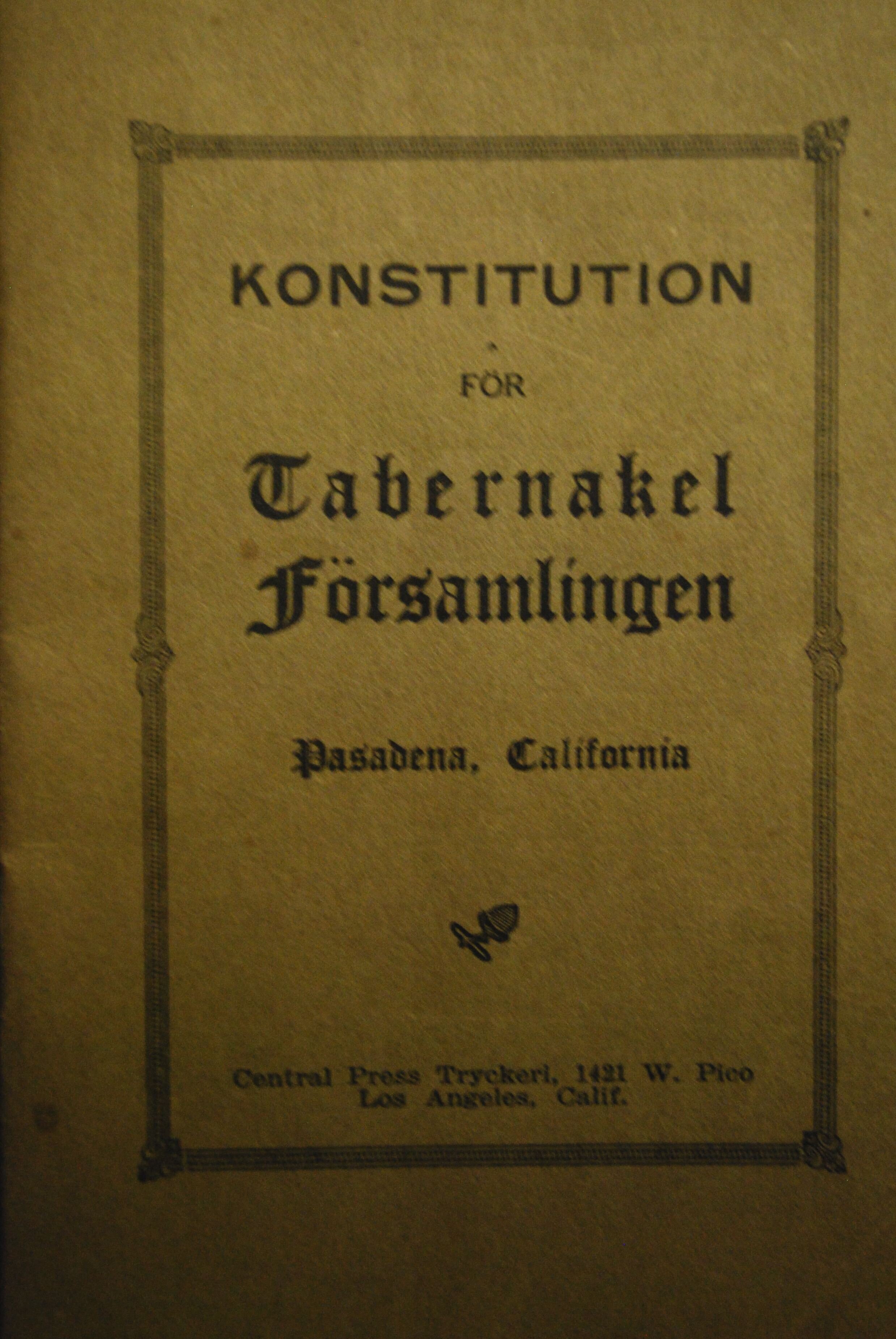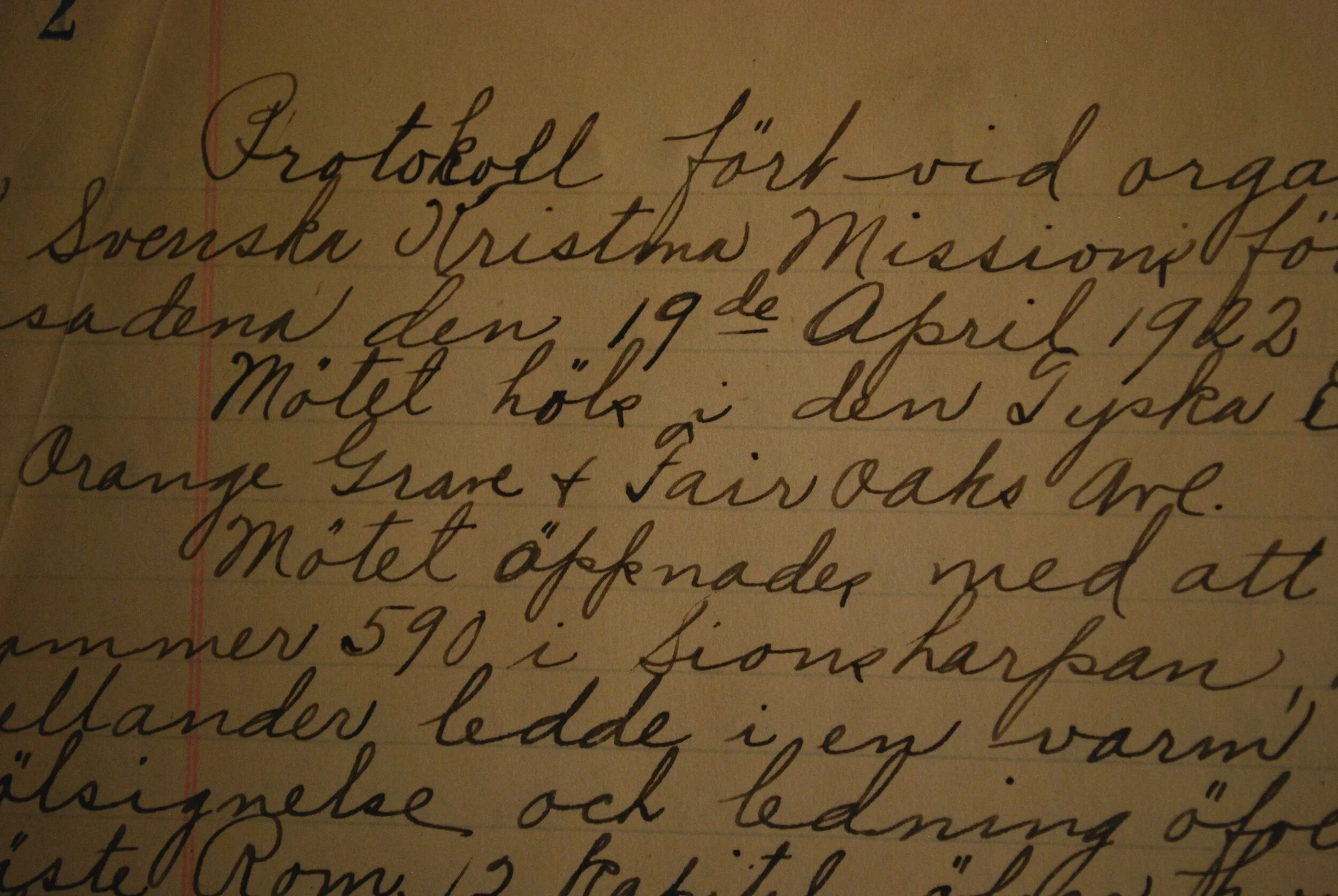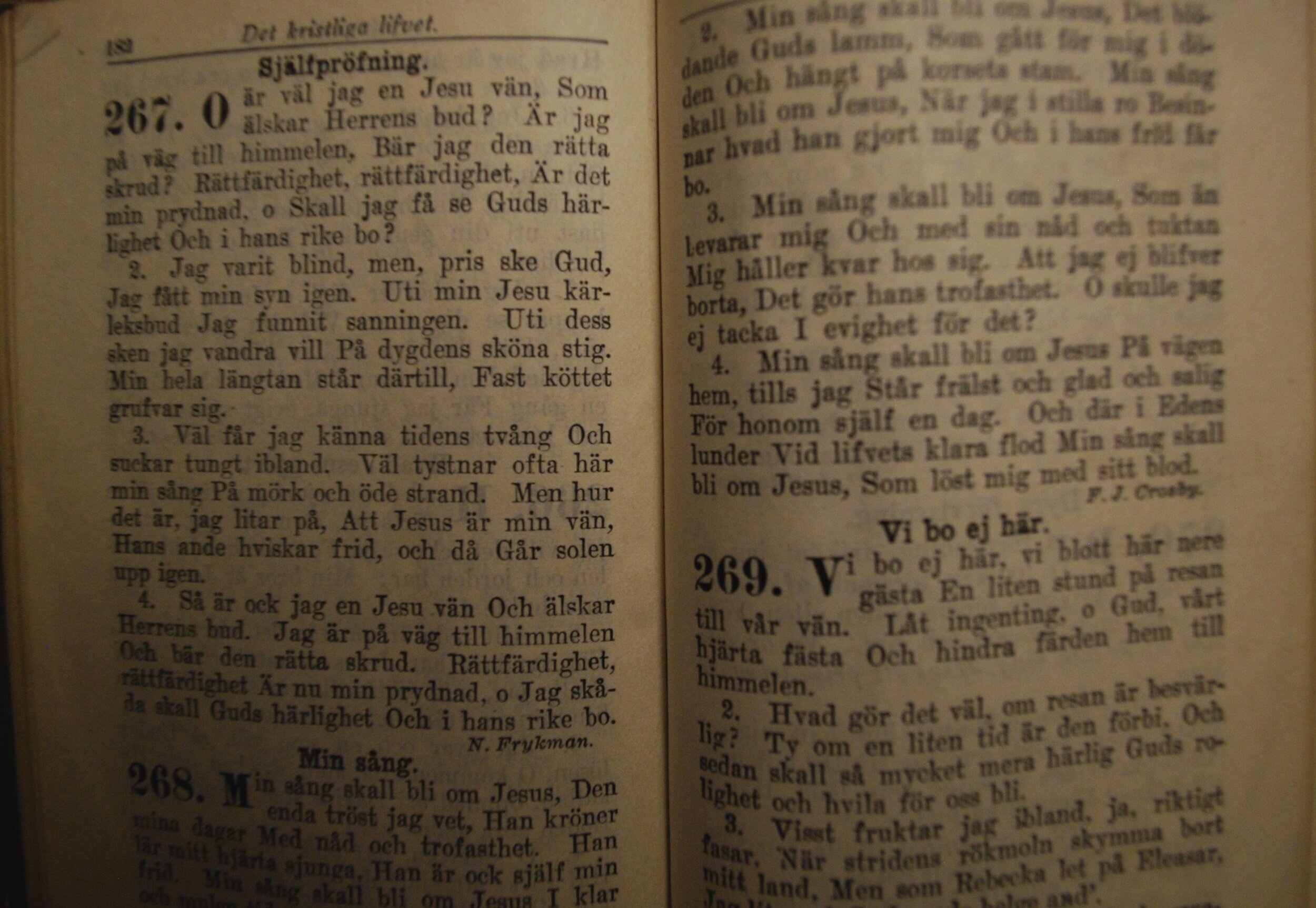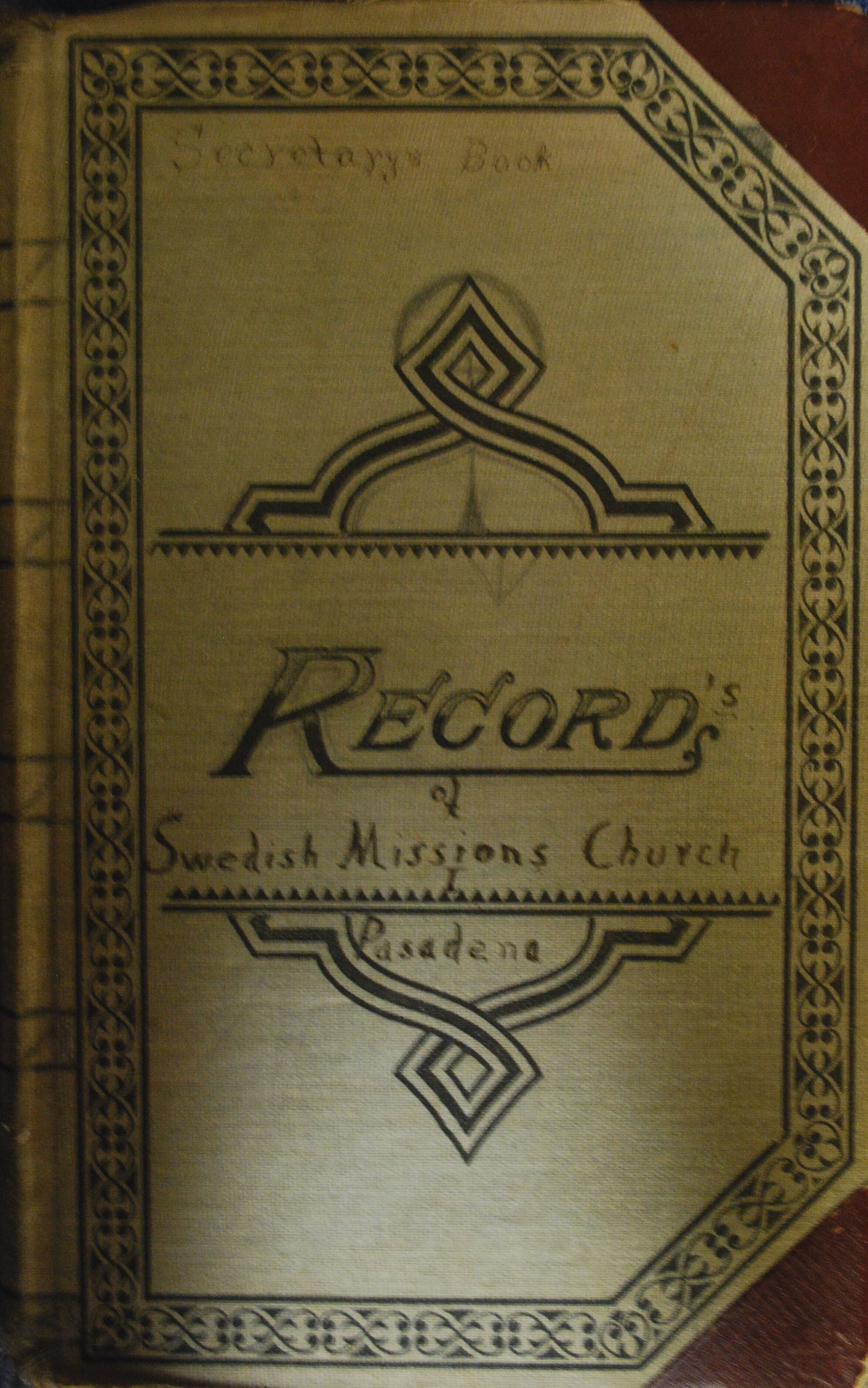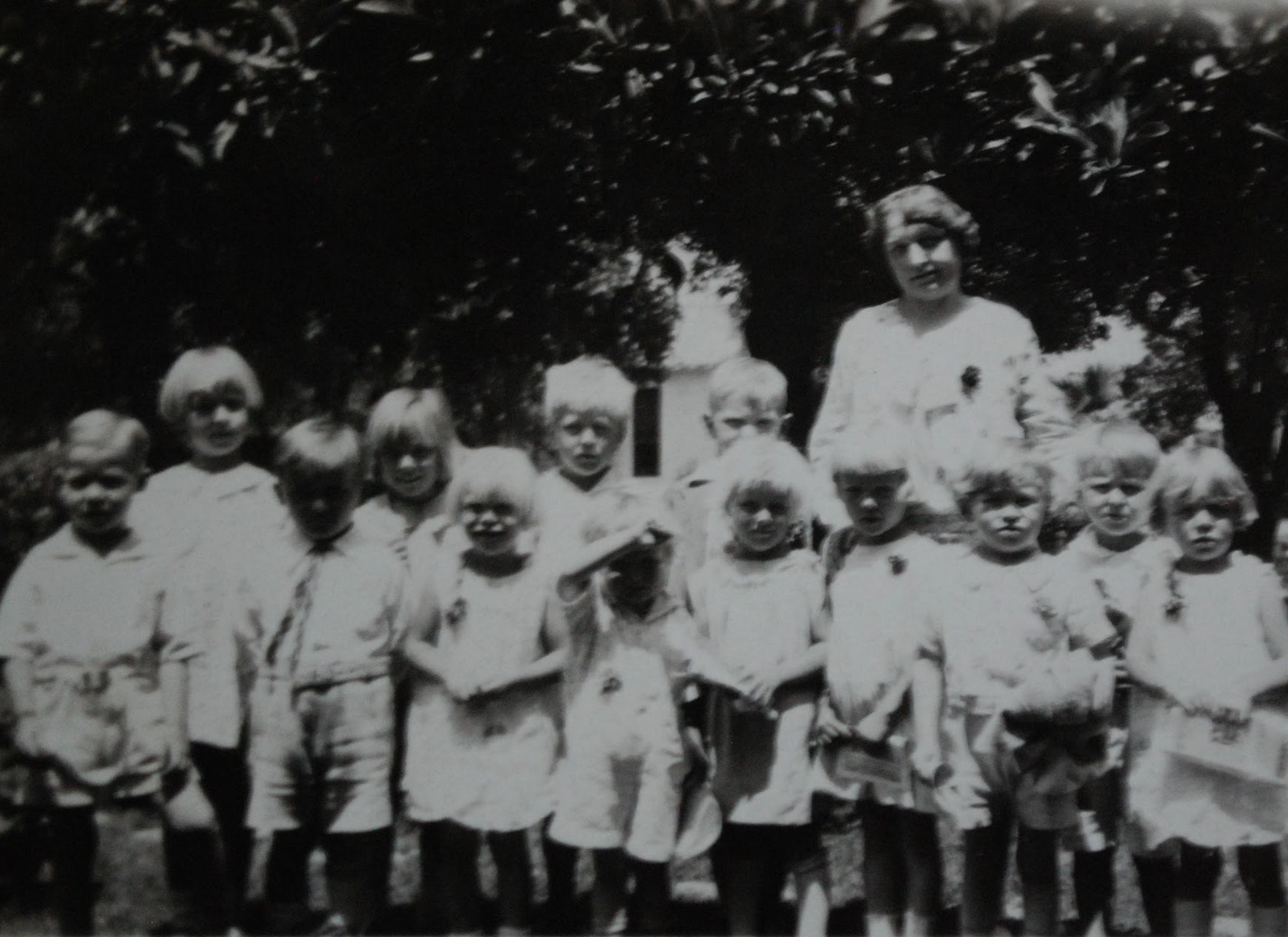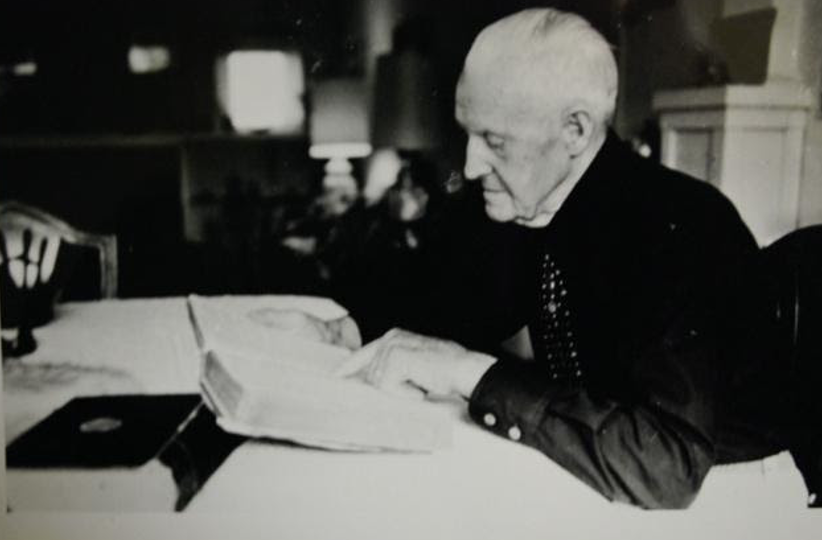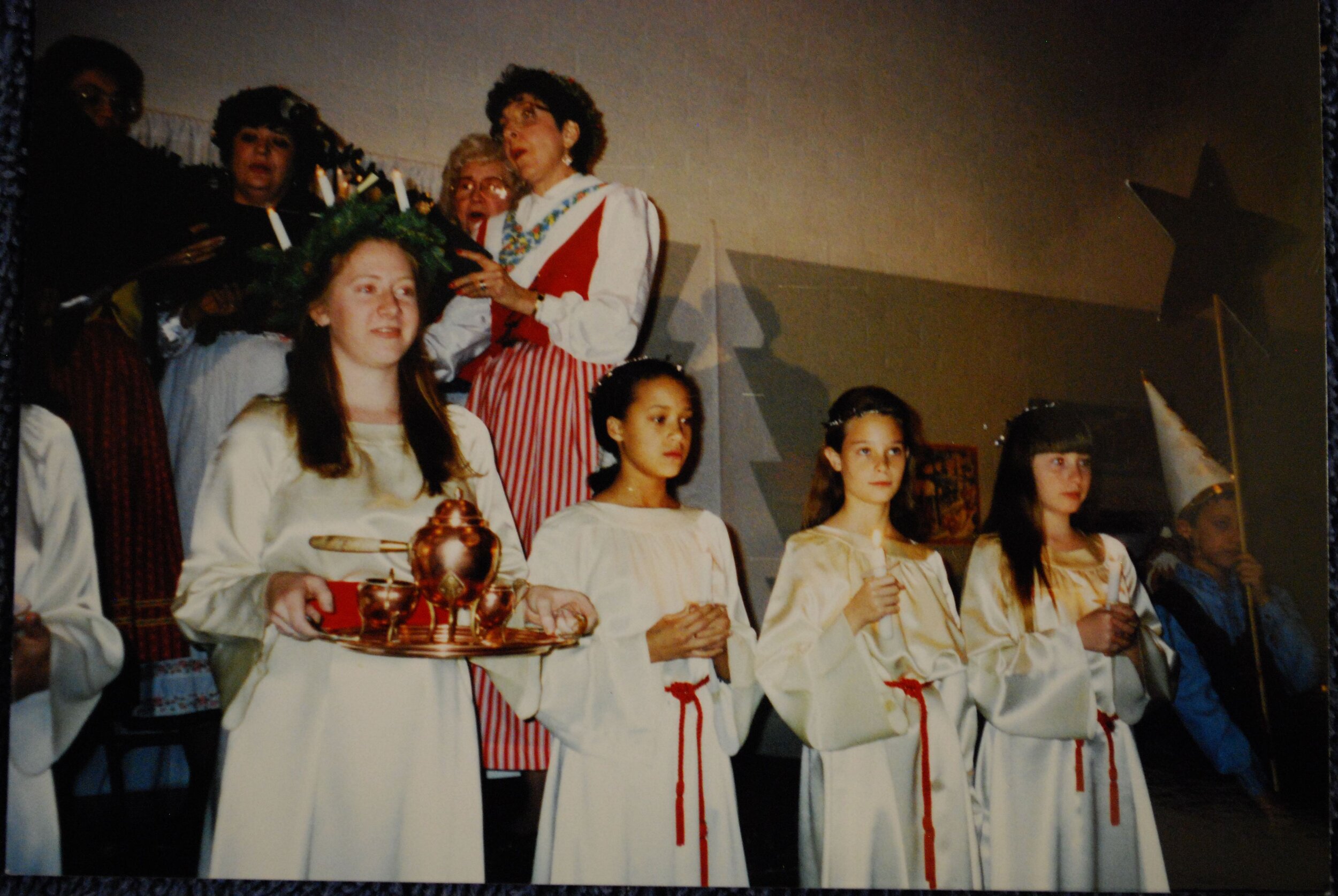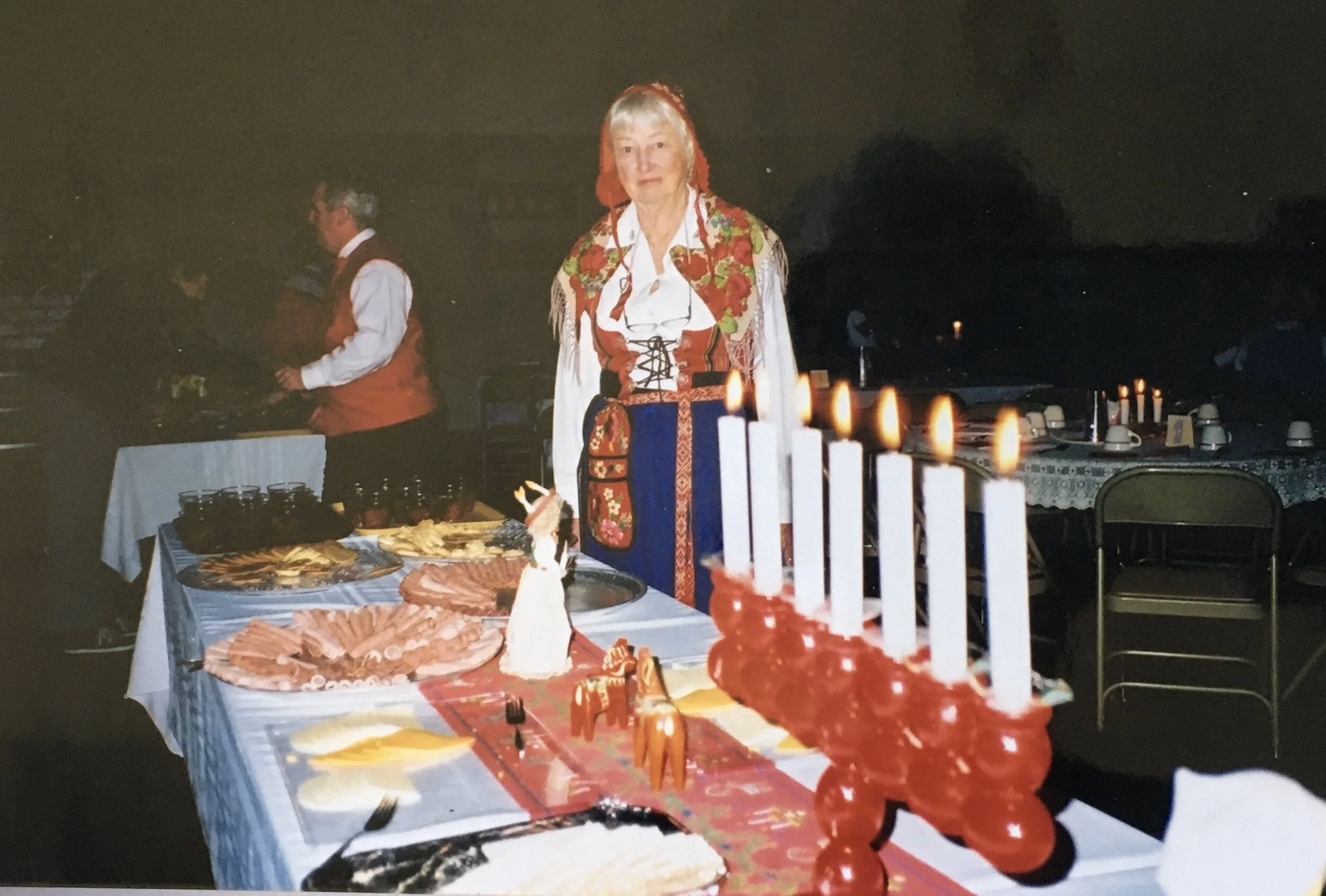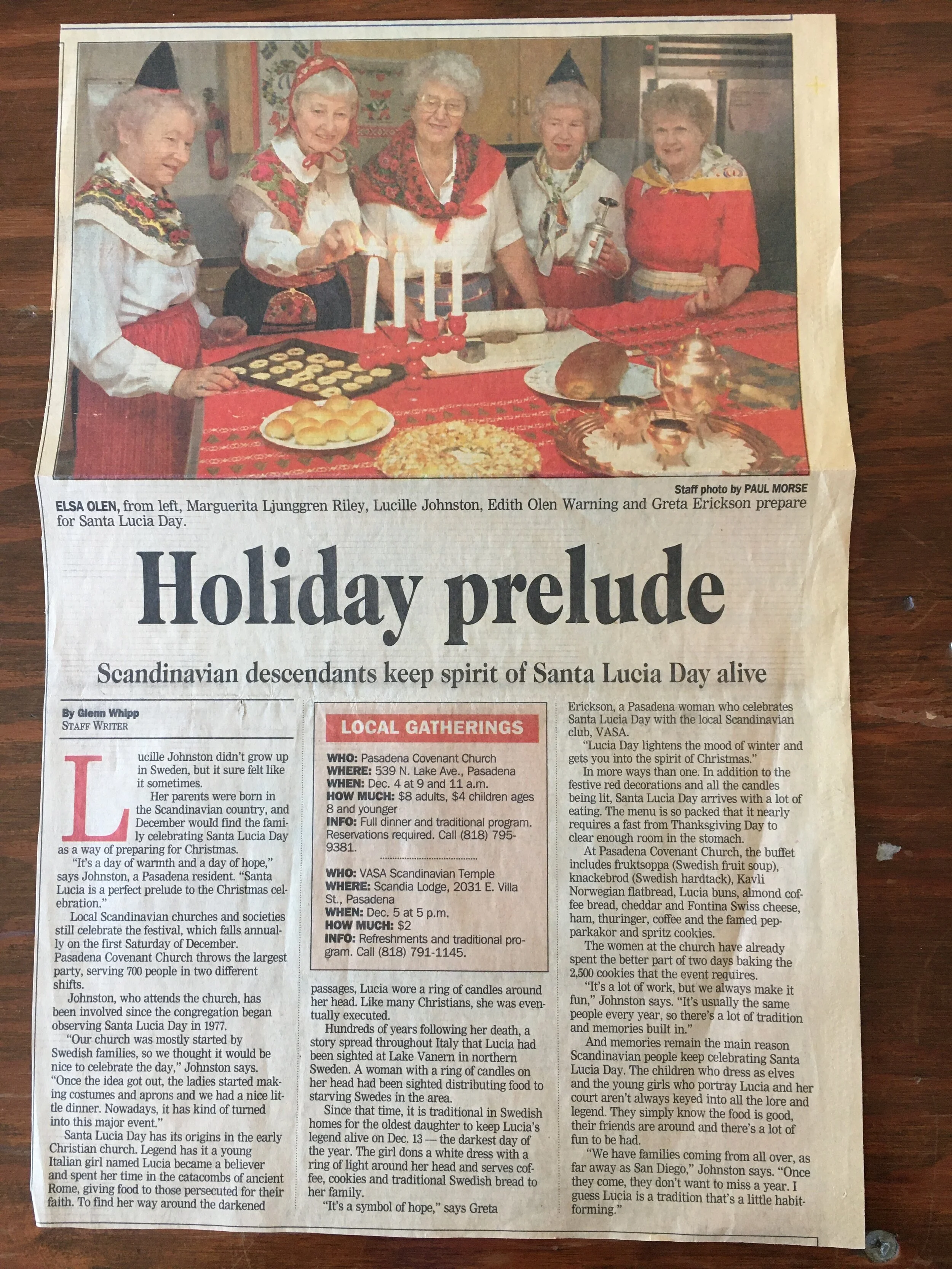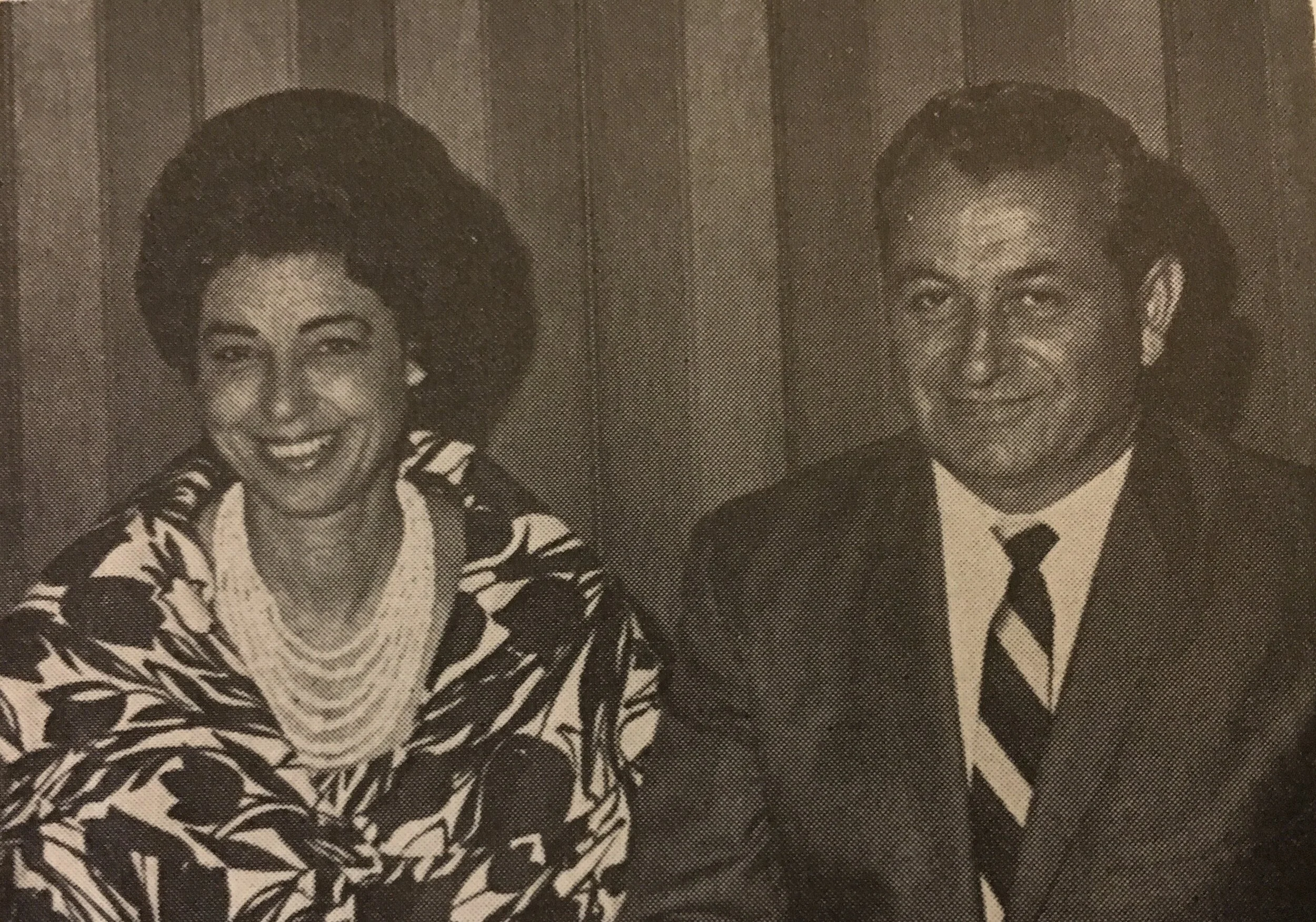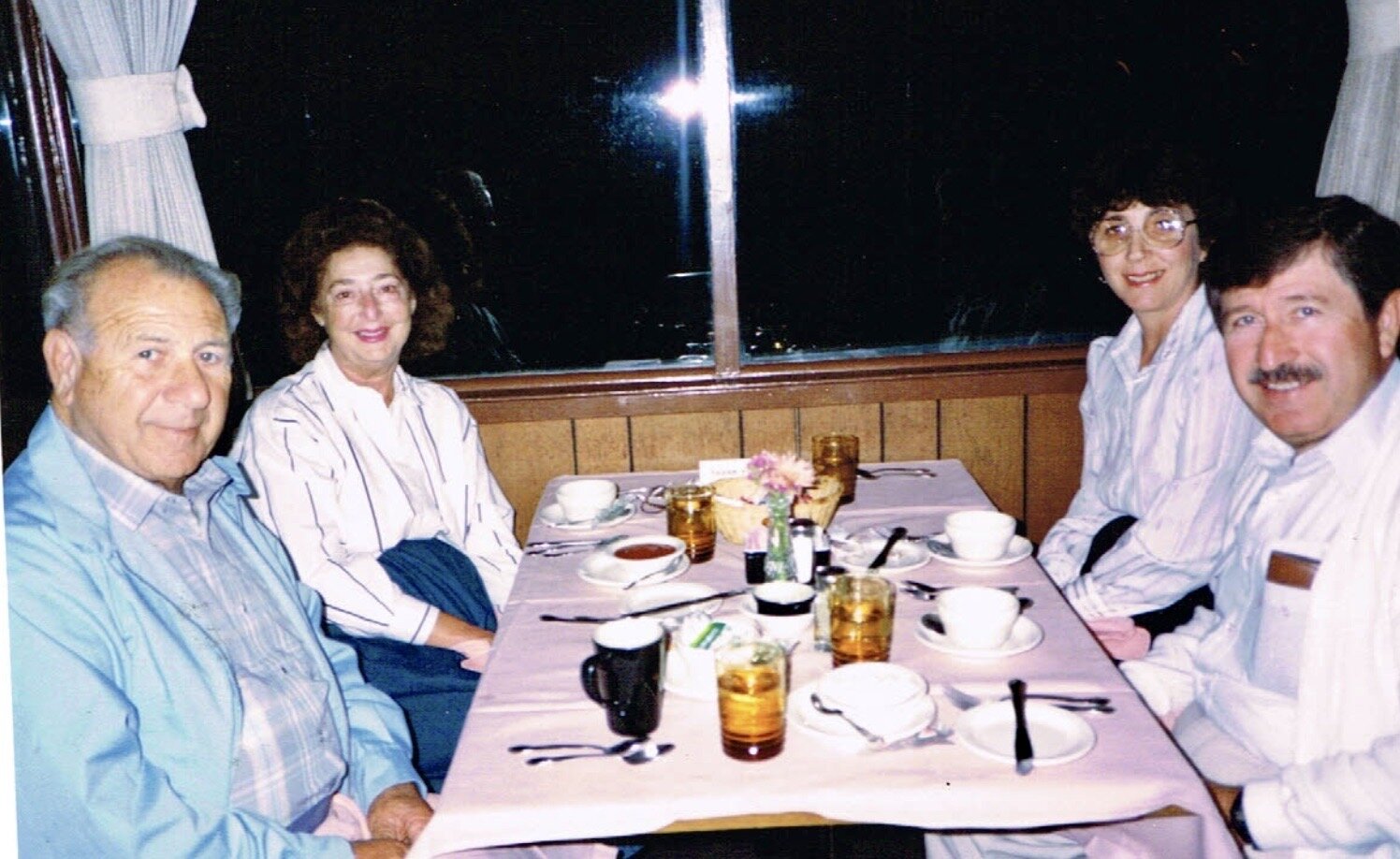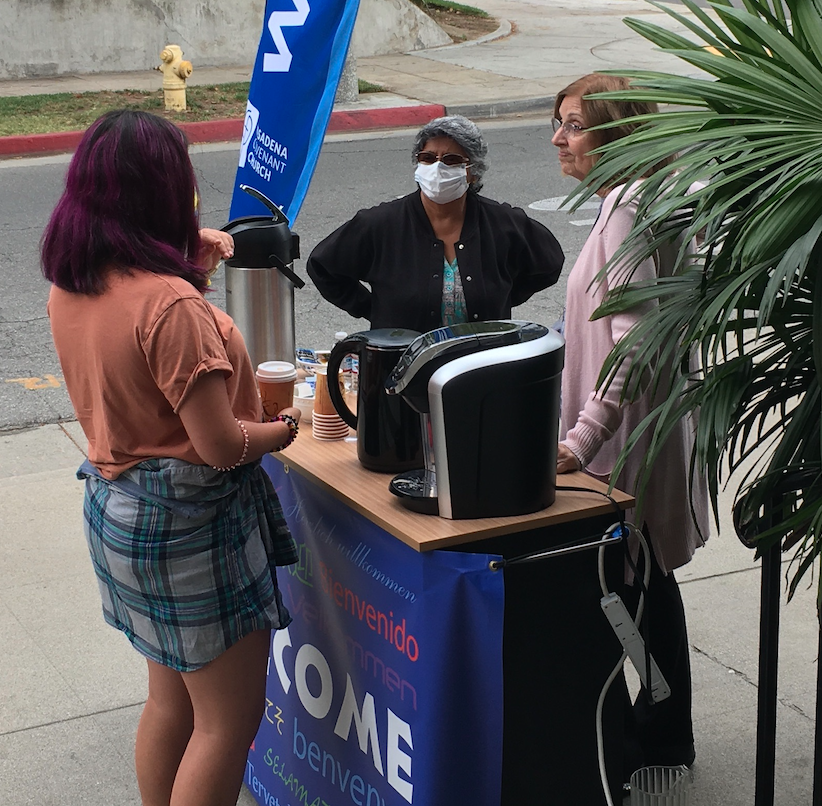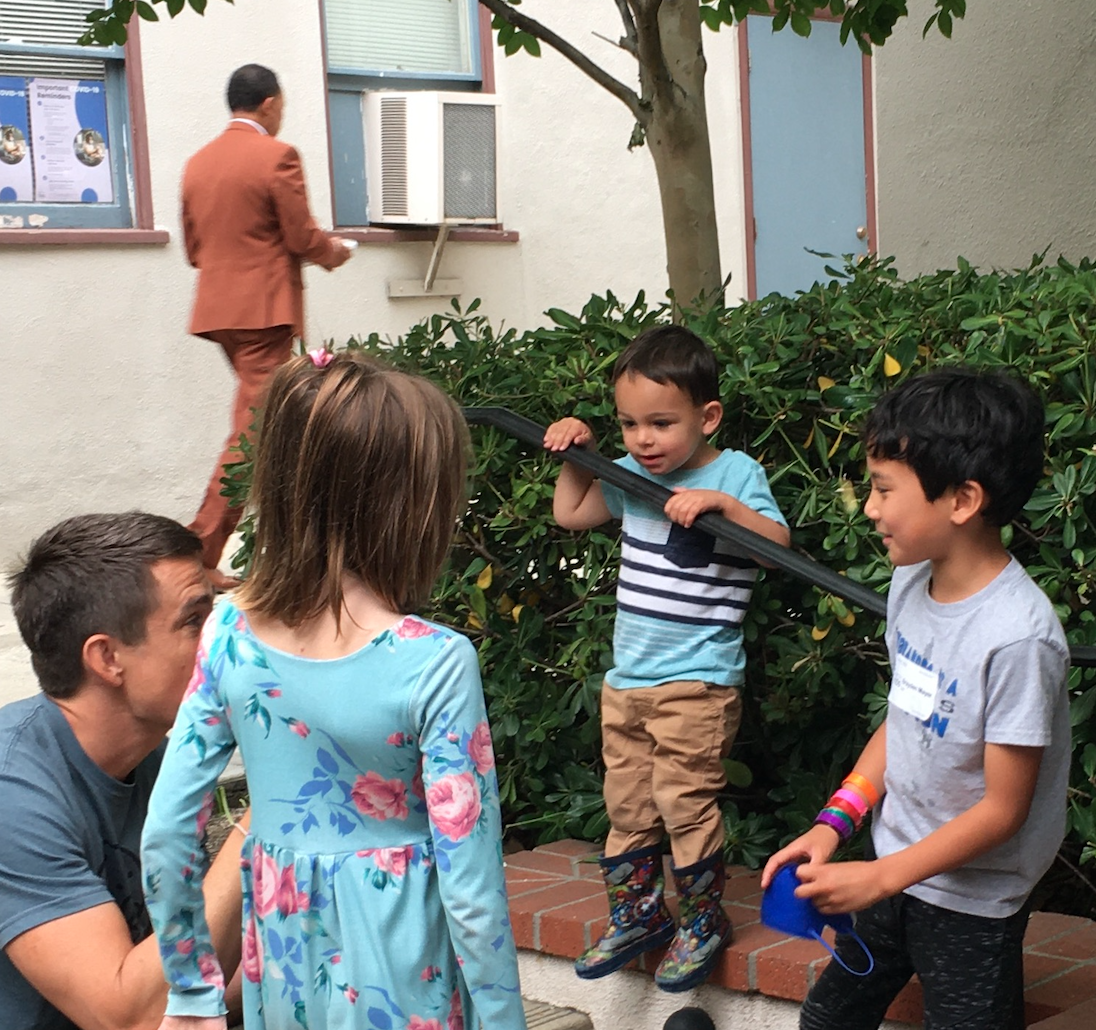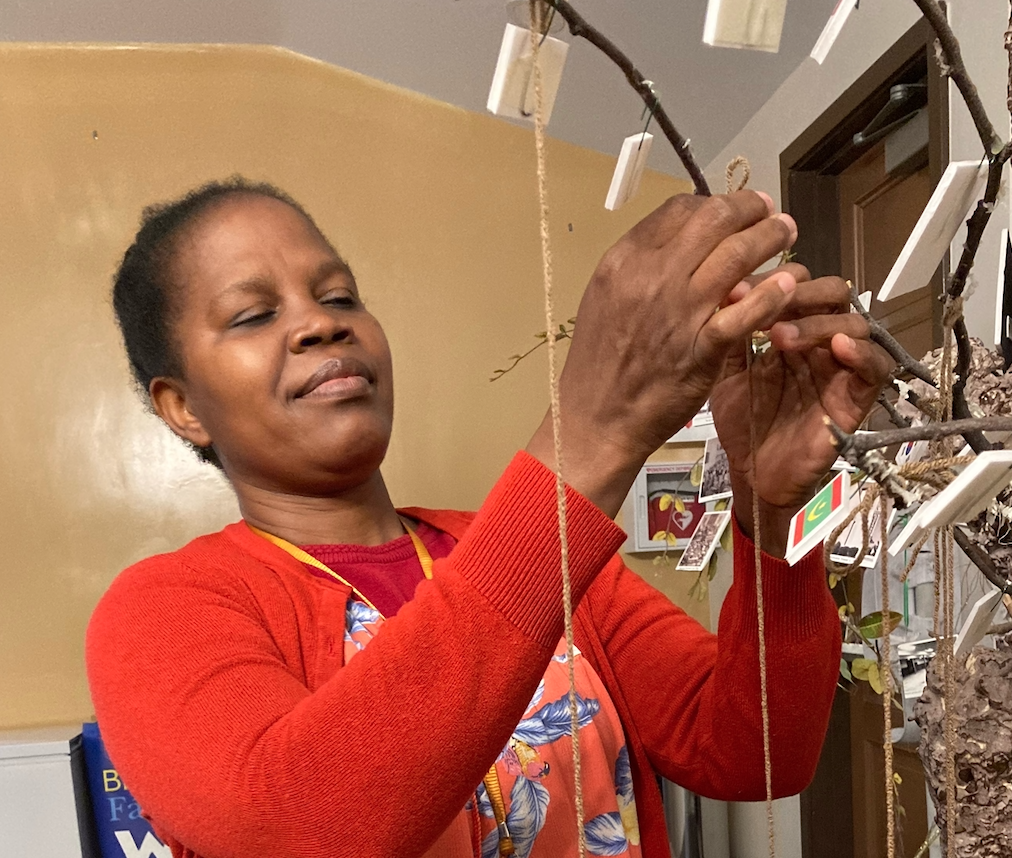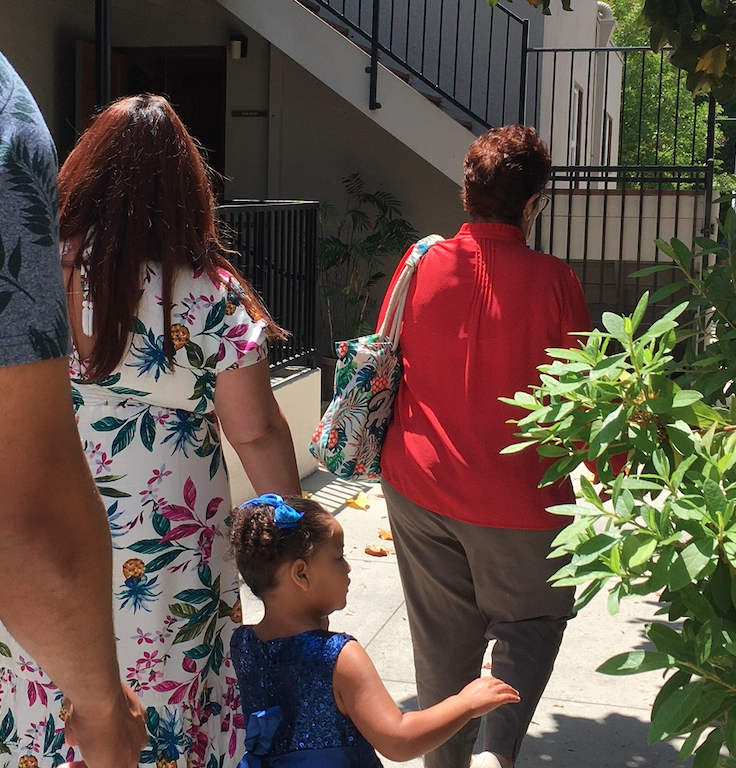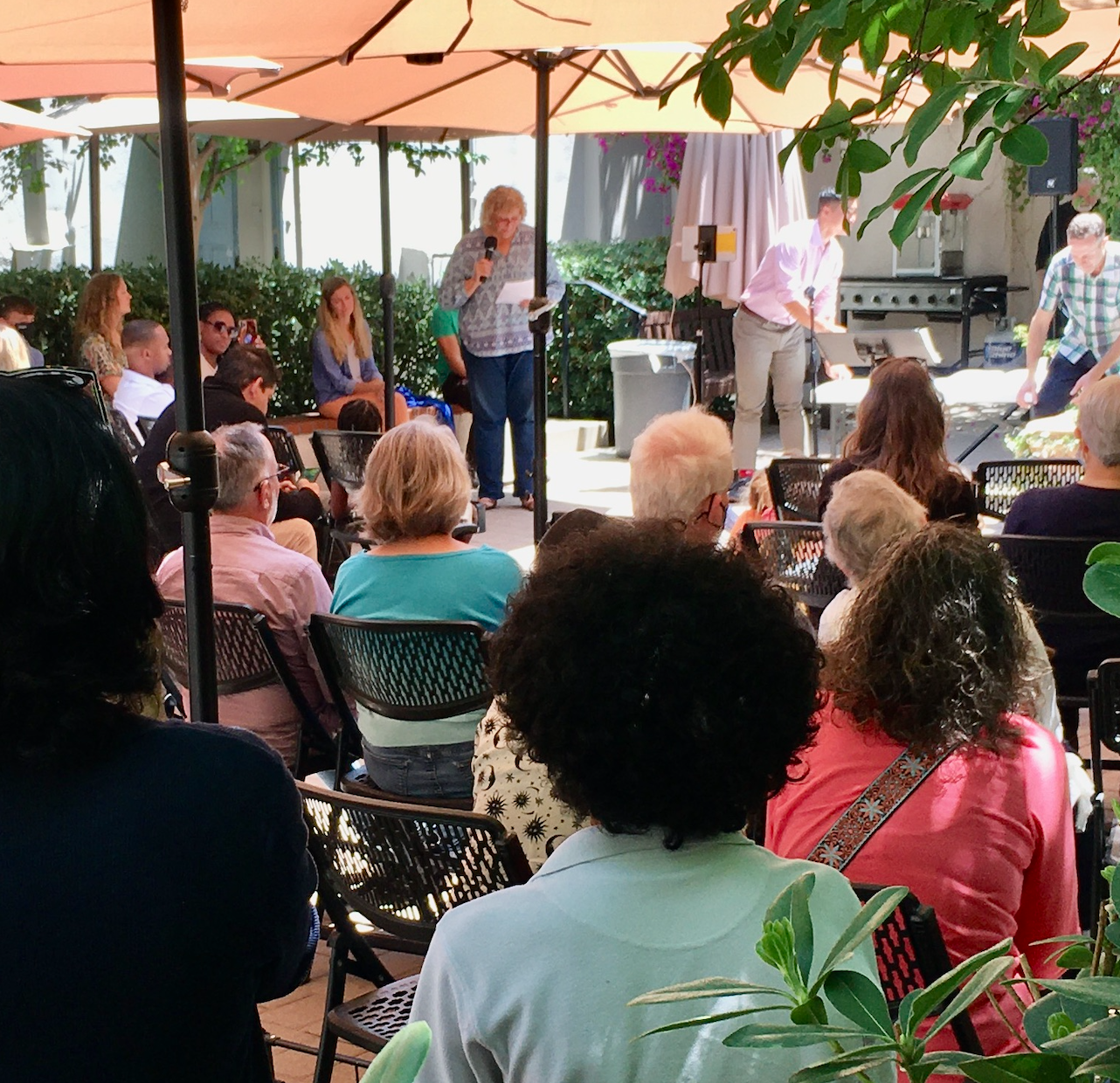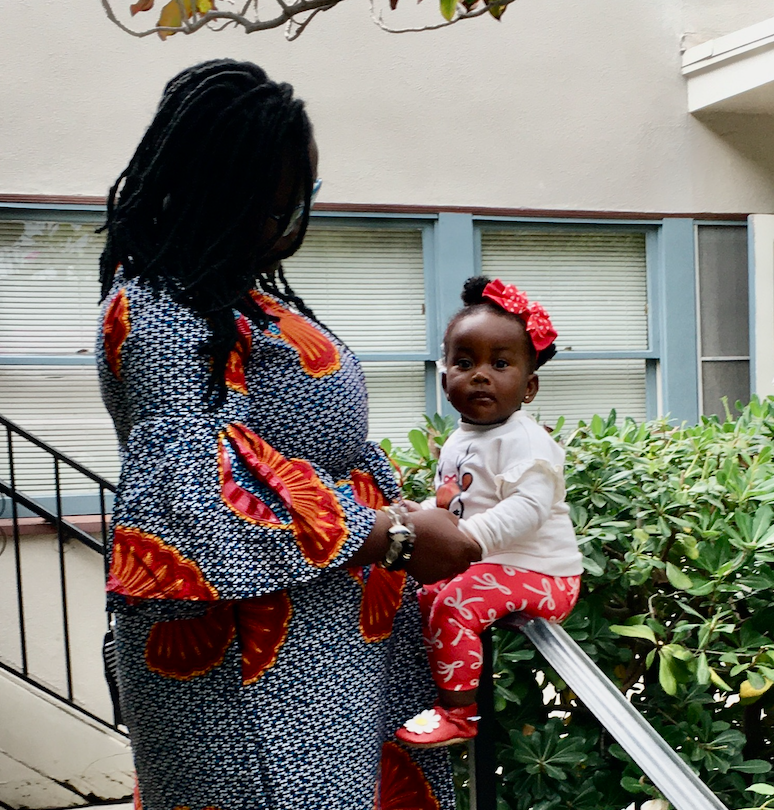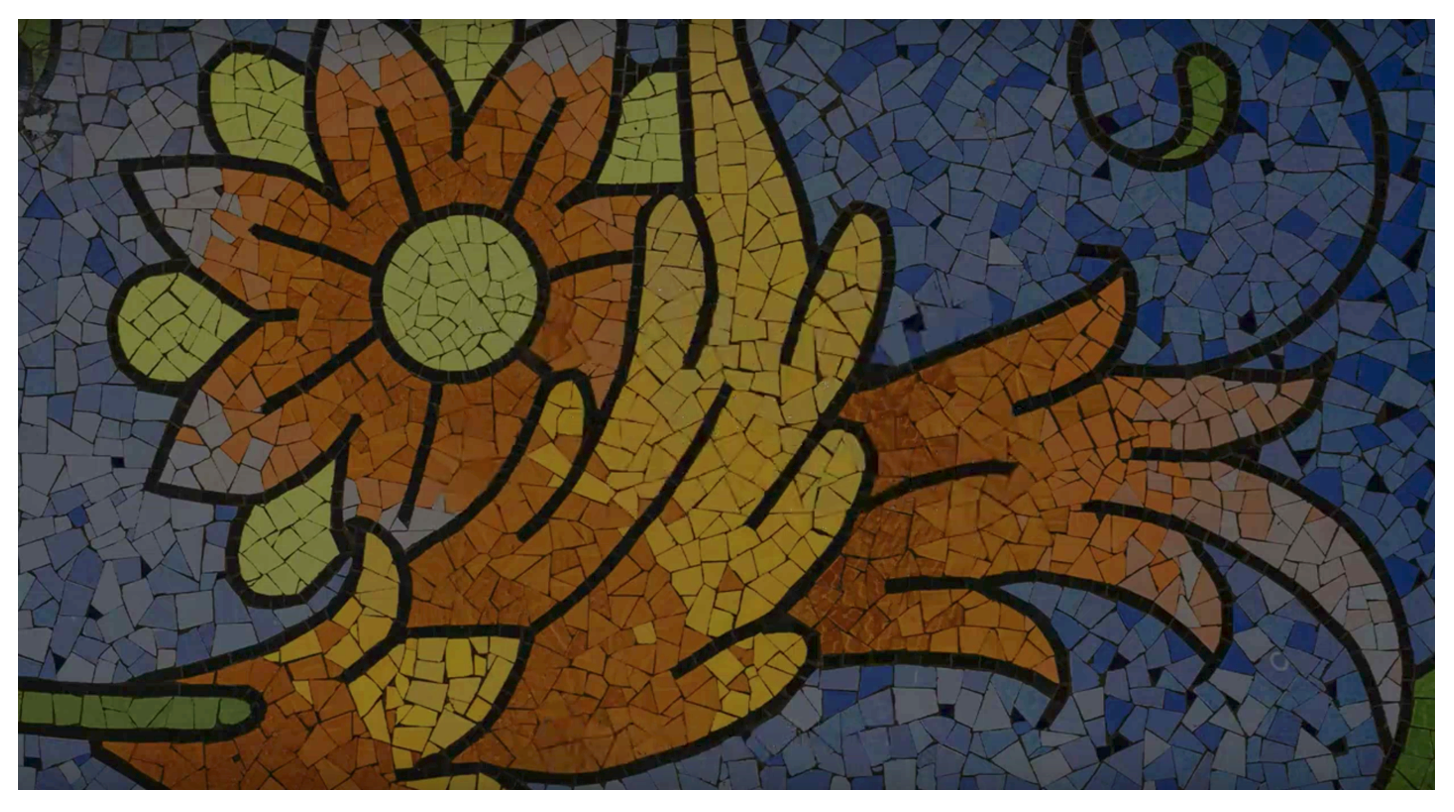Language and Ethnicity
The Swedish Era
The early identity of Pasadena Covenant Church was solidly Swedish. The founders or their parents had left their homeland around the turn of the century. Many came on the Santa Fe railroad from Chicago, getting off at the last stop before Los Angeles—Pasadena, an increasingly popular resort city. Twelve of the founding members were single women, employed as domestic workers. There were seven other married couples. Their common faith had grown out of the Pietist spiritual movement in Sweden that emphasized new birth in Christ and meeting in small groups to study the Bible and encourage holy living. Their common Swedish culture made it easy to spend their limited free time together (Thursday afternoon and evening, and Sundays after breakfast). Their common language, Swedish, was used during church activities that included Sunday school at 9:45, morning worship at 11:00, young people’s meeting at 5:00, social hour at 6:00, and evening service at 7:00. In between morning and evening activities, families had a large Sunday dinner, always with plenty of food to extend hospitality to visitors, or a picnic at Tournament Park behind Cal Tech. On Thursdays they met for prayer at 7:30. Thursday was also the day for the monthly ladies’ aid, or Phoebe Society, meetings.
Transition to English
By the 1930s, fewer immigrants were coming from Sweden, and the children in the congregation were growing up more familiar with English. Changes were gradually made. By 1936, on Sunday mornings there was an English meeting for young people and singles in the basement auditorium, led by Roy Johnston. The English ministry was expanded to include a joint service in the sanctuary once a month, and then twice a month. The Thursday evening prayer service was also converted to English. In 1940 it was decided to conduct all the services in English.
Ludwig and Amy Brandt exemplified the adult members at that time. Kind, gentle, and hospitable, they regularly invited visitors to Sunday dinner. Ludwig was a beloved and well-respected deacon known for being a peacemaker and able to calm things down during contentious meetings. At the annual meeting when the final switch from Swedish to English was discussed, he spoke in favor of it. He said, much as he loved the Swedish language and hearing the Bible read in Swedish, he recognized that more people in the community could be served through English. His wisdom carried the day.
Maintaining Heritage
Even after English became the language of choice, some Swedish traditions remained. Every Christmas morning, for example, church members used to gather at 5:30 am for a Julotta service. Carols included the Swedish song “Lyssna.” After the worship service, members gathered in the basement for a pancake breakfast served by the deacons, and drank “Swedish” coffee that Alice Anderson, the co-custodian, prepared with a raw egg to make it clear. But a new generation of church members felt they would rather be at home so early on Christmas morning. In 1977 they started a new tradition that was to last till 2004—a Saturday morning Lucia Fest early in December. Two breakfast seatings packed the gym as people came from all over to enjoy the baked delicacies of pepparkakor and lussekatter as well as fruit soup.
Arrival of People with Different Heritages
If you were to look at Pas Cov’s church directories before the 1950s, names such as Olson, Erickson, Carlson, and Johnson would dominate. But in the post-war era, Pasadena began to become more diverse, with more African Americans and Asian Americans, as well as immigrants from Armenia, Mexico, and Central America.
Paul & Rose Tahmisian, photo from Pasadena Covenanter 1969
Paul and Rose Tahmisian were among the first Armenian members of Pas Cov. Paul was born in Turkey and, as his parents escaped the genocide via Greece, came to live in California when he was 11. He was active in Pas Cov starting in 1950, leading a class for young people. Later he hosted a Friday prayer breakfast for businessmen at the church and also served as deacon and trustee, while Rose was involved with Cradle Roll, Covenant Women, and missions.
The Gedigians and the Maljians (photo courtesy of Julie Maljian)
. Other Armenian families who came in the 1950s and 1960s included Hagop and Haigan Keverian, Jim and Eva Jizmejian, Harry and Isabel Gedigian, and the Pampeyans. Sisters Dottie and Julie Avakian sang in the choir in the late 1950s and the Maljian name was added to the roster when Perry married Julie in 1960.
Women’s group including Virginia Lowe (photo from the Pas Cov archives)
Another key family who came to Pasadena Covenant in the 1950s was Chinese-American Eugene Lowe and his wife Virginia. Eugene’s forebears were Chinese immigrants who had come in the mid-19th century to build railways and mine gold. Although his father was a third generation American, he had been told by his bank employer in Calexico that there would be no promotion opportunities for a Chinese man, so he had moved his family to Pasadena in 1939 (when Eugene was 9) and opened a gift and furniture store on the corner of Villa and Los Robles. Virginia, like many young mothers at that time, came to the church because she’d been invited to the young mothers group, and Gene later followed. Gene and Virginia were
Eugene Lowe (from Pas Cov archives, album belonging to Anna Peterson)
active in many church ministries, from Courier class to men’s fellowship, from missions to Sunday school superintendent. Although the Lowes thought of themselves as Americans, their Chinese heritage was especially evident in their hospitality—they often took visitors out to lunch after church at local Chinese restaurants.
Hosting Churches
New languages echoed throughout Pas Cov as the church began to host other congregations. The first was a Korean church that met in Carlson Hall from 1969 to the mid-1980s. Another larger Korean church was Logos, who used space on our campus for a few years in the 1990s. Spanish was the language of IMHA, or “Iglesia,” a growing church that met in the gymnasium for about a decade starting in 2000. Though all of these churches wanted to keep their own identity, their presence on our campus was a reminder of the larger Kingdom of God, with all its ethnic and linguistic variety.
African Students
Pasadena Covenant’s location near Fuller Seminary has meant that a number of international students have blessed the congregation. Mossai and Sabuli Sanguma, Covenanters from the Congo, were here 1999-2003. On their return to DRC, Mossai became head of the Congo Covenant denomination (CEUM) and also established a university, while Sabuli founded Congo Voice, which supports orphans. Bitrus and Monica Audu from Jos, Nigeria, were also at Pas Cov for a season and have inspired some in our church to partner with their ministry, Christ Missionary Outreach, in northeast Nigeria. A few years ago, we also welcomed Bitrus and Sanatu Sarma, also from Jos, Nigeria, during their postdoc year at Fuller. Bitrus is president of ECWA Seminary and Sanatu has founded a ministry to women suffering from fistula damage. (The gospel was originally shared in their area by our longtime members and mission professors Meg and Chuck Kraft.) From Nigeria, we’ve also fellowshipped with Chris Gankon and the Enwerejis—Caroline also ministering to us through her worship team participation.
Our Current Identity
Pas Cov continues to broaden its ethnic identity, now home to people whose families speak or whose forebears spoke Sinhala, Tamil, Farsi, Japanese, Tagalog, Mandarin, Cantonese, Vietnamese, Hausa, and more. Many of our kids are being educated in Pasadena’s dual-immersion schools in Mandarin and Spanish. A highlight of hospitality time after the church service from 2018 to 2020 was Wayne Aoki’s monthly treats featuring world cuisine, like lahmajun, malasadas, lo bak go, aluwa, and akara.
Of course, there is much more to one’s culture and ethnicity than food. Underneath our taste buds are important values, such as whether it’s more important to be promptly generous with one’s money or to save for the future, or whether one should keep to a schedule or respond to an immediate need. There are also deeply rooted practices, such as strategies for dealing with conflict, conversational patterns, or approaches to problem solving. But food is a good beginning. As Wayne says, international dishes spark people’s interest in new cultures, put out the welcome mat for everyone, and reinforce our commitment to hospitality for all.
Hospitality for all was the focus of a year-long series of Sunday sermons and Wednesday interviews in 2020 as we turned our attention to the brilliance of God’s multiethnic kingdom. Starting in Genesis and journeying all the way to Revelation, we sought to understand current racial inequalities and systemic injustice, and to hear and proclaim God’s intention for racial and ethnic diversity and for reconciliation.
Beyond 100
The church made a big language switch from Swedish to English. What switches might be ahead in the future? How can we more effectively show that God’s kingdom is multiethnic, multifaceted, and brilliant?
Interested in more?
In 2020-21 our Sunday services focused on the brilliance of God’s multiethnic kingdom. From September 13 through November 22, 2020, a scriptural foundation was laid—from Genesis to Revelation. From January 3 through May 30, 2021 the focus was on the King of this kingdom—Jesus—and his teaching. It’s worth listening to the sermons again (which can found on the church youtube channel). The conversations during Wednesday Reflections also followed this theme. Every reflection was wonderful, but we want to highlight the following: David Thaxton, a biracial adoptee from Korea, raised by a black family in Pasadena (Sept 9, 2020 and April 28, 2021); Jeff and Susan Maljian, on their ethnic identities (Sept 30, 2020); Christine Anketell, on both her experience leaving her homeland of Sri Lanka because of war and the hard experiences of some of her community college students (March 24, 2021) and Pastors Dan Huang & Steve Wong, on on their experience of racism as Asian Americans (March 31, 2021).
“There before me was a great multitude that no one could count, from every nation, tribe, people and language, standing before the throne and before the Lamb.”

